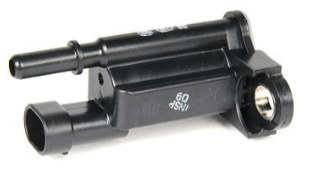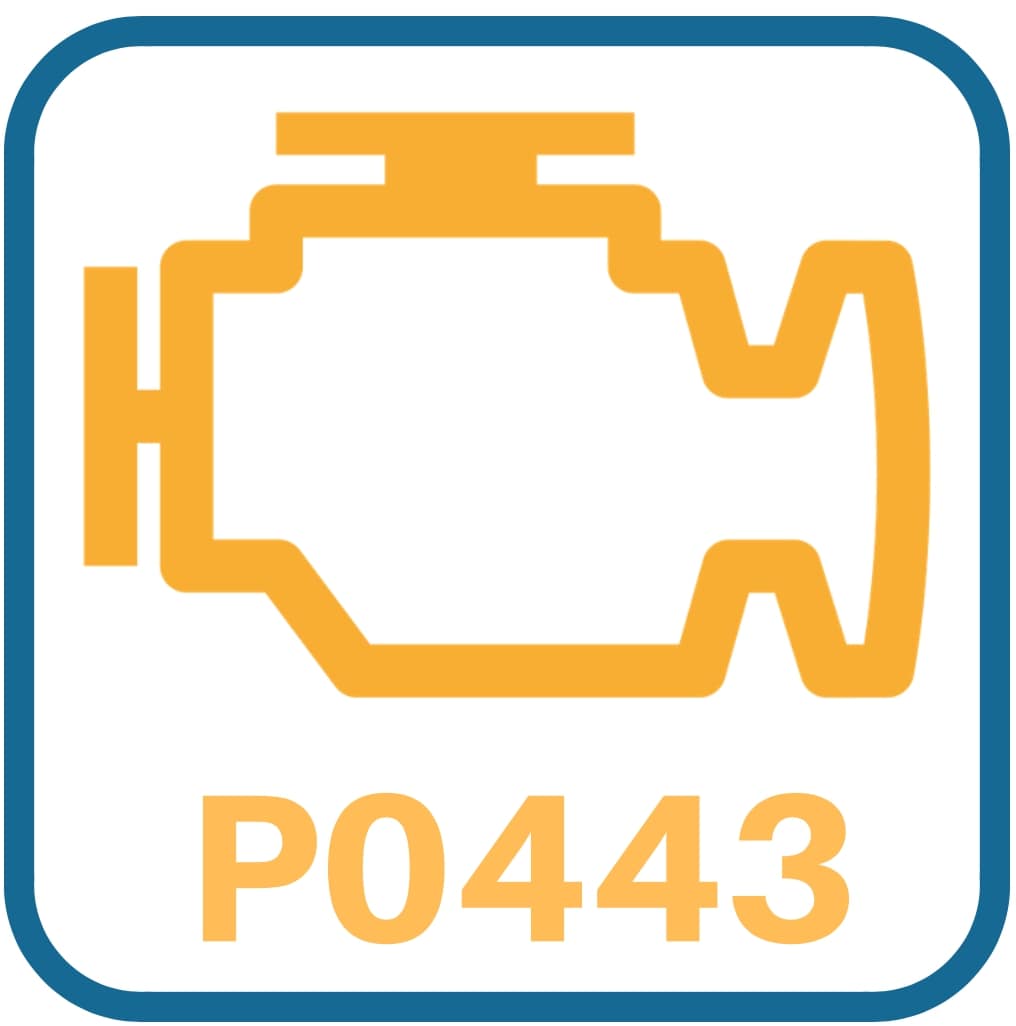
P0443 is a very common OBD2 code. It’s generic, meaning it has the same definition for the Honda Pilot as any other vehicle.
If your Pilot has this code, it indicates the EVAP purge control valve circuit is malfunctioning. This is typically caused by a short in the wiring to or from the purge valve solenoid or an issue with the solenoid itself.
While it’s not the most common cause of p0443, a bad gas cap can throw this code. It’ll usually be accompanied by other codes, such as P0455.
P0443 Quick Facts
- P0443 indicates a problem with the wiring to/from the purge valve or that the purge valve solenoid has a short/open circuit.
- It typically won’t affect the way that your Pilot runs.
- You may smell gas.
- Most commonly caused by a bad purge valve solenoid.
- Checking the gas cap may just save a lot of time.
P0443 Error Code Definition
P0443: EVAP System – Purge Control Valve – Circuit Malfunction
EVAP System
Your Pilot’s Evaporative Emissions Control (EVAP) System is responsible for sending fuel vapor from the gas tank and sending it to the intake, where it can be burned. Otherwise, these vapors are sent out into the air.
Purge Control Valve – Circuit Malfunction

The P0443 error code indicates that there is an issue with the Evaporative Emission (EVAP) Purge Control Valve circuit in your Honda Pilot.
This error occurs when the vehicle’s Engine Control Module (ECM) detects a problem with the wiring to or from the purge valve, or if the purge valve solenoid has a short/open circuit.
P0443 is often accompanied by P0440. And when it is, focus on P0443. P0440 indicates that the Pilot’s EVAP system is malfunctioning, which isn’t a lot to go on.
P0443 Symptoms: Honda Pilot
There typically won’t be much in the way of noticeable symptoms associated with P0443 and your Pilot. Here are the most common ones:
- Check Engine Light– This is often the only symptom that you’ll see with this code.
- Gas Smell– If the purge valve is stuck shut when the fuel vapor builds up, it will escape into the air. You may smell gas when you aren’t moving very fast.
- Lean Condition– A lean condition indicates that the ignition process is occurring with too much air and not enough fuel in the mixture. If it’s bad enough, it can cause the engine to run rough. This is not very common, though. You may see P0171 or P0174 with this code if that’s the case.

Honda Pilot P0443 Causes
Top Causes
P0443 indicates that there’s an issue with the process that commands the purge valve solenoid. The Pilot’s ECM commands the purge valve by activating a ground circuit.
P0443 occurs when the ECM has told the purge valve to open, and it detects that didn’t open due to a wiring issue.
- Purge Valve Solenoid– The wiring in the purge valve solenoid can go bad, which means it can’t respond to instructions from the ECM. Inspecting the wiring harness is the first step you should take toward repairing P0443 in your Pilot.
- Wiring Issues– If the wiring harness from the PCM to the purge valve solenoid is frayed or shorted out, the purge valve won’t open, and P0443 will be thrown. Take a look at the wiring harness plugged into the purge valve solenoid and see if it looks undamaged and that it is secure.
How to Find a Short in a Car (Backyard Mechanic)
Other Causes
- Damaged or Disconnected Vacuum Hoses– Another potential cause of P0443 in your Pilot is damaged or disconnected vacuum hoses. These hoses are part of the EVAP system and help control the flow of fuel vapors. Check for cracks, leaks, or disconnections in the vacuum hoses and fix them as needed.
- Bad Charcoal Canister– A bad charcoal canister might be causing the P0443 code in your Honda Pilot. The charcoal canister is an essential part of the EVAP system, as it absorbs and stores fuel vapors before they are released into the atmosphere. A damaged or clogged charcoal canister can cause the P0443 code to appear. To fix this issue, you may need to replace the canister.
Diagnosing and Fixing P0443 in the Honda Pilot

Code Scanner
A good code scanner can really help aid you in diagnosing P0443. You’ll be able to command the purge valve to open.
When it opens, you should be able to hear it. If you don’t hear anything at all, you’ll need to check to see if the purge valve solenoid is getting any voltage. If it is, and the ground is good, it’s almost certainly the solenoid that is at fault.
If there isn’t voltage at the solenoid, you’ll need to go back and see if there is a wiring issue. You’re going to be looking for frayed and shorted wiring going to the solenoid.
Here’s a good YouTube video on how to diagnose P0443:
Inspecting Vacuum Hoses and Connections
Start by checking the gas cap, as a loose or damaged cap can cause the issue. Next, inspect vacuum hoses and connections for any signs of excessive wear, cracks, or disconnections. Repair or replace these components as necessary.
Replacing the Charcoal Canister
If the purge control valve and vacuum hoses are in good condition, you may have a malfunctioning charcoal canister.
Disconnect the vent hoses and electrical connections from the canister before removing it from the bracket. Replace it with a new one and ensure all connections are secure.
After completing these steps, clear the code with your OBD2 scanner and test drive your vehicle to confirm the issue has been resolved.
Conclusion
P0443 in the Honda Pilot is a relatively easy trouble code to diagnose and repair since the purge valve is usually pretty easy to access.

